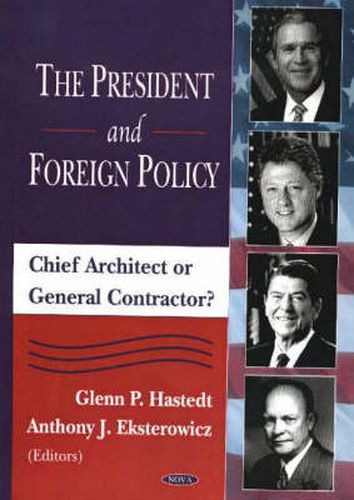Readings Newsletter
Become a Readings Member to make your shopping experience even easier.
Sign in or sign up for free!
You’re not far away from qualifying for FREE standard shipping within Australia
You’ve qualified for FREE standard shipping within Australia
The cart is loading…






These essays represent attempts to understand presidential foreign policymaking in a new global context. Within the parameters of the metaphorical question our authors analyse the Atoms for Peace and Star Wars proposals of the Eisenhower and Reagan presidencies. They assess foreign policymaking in the William J Clinton and George W Bush administrations. They consider the impact of public opinion upon foreign policymaking and they comment upon US Mexican relations, the current state of intelligence activities and humanitarian non-intervention and the conflict in Liberia. They provide a rich and early analysis on these subjects. There is no definitive answer to the metaphorical question only increasingly complex shades of the metaphor developed by the authors. The authors provide questions for the future of foreign policymaking that are unresolved at present time. Our new era and environment provide challenges and opportunities but how this nation manages these depends, in large part, upon this and future presidential administrations.
$9.00 standard shipping within Australia
FREE standard shipping within Australia for orders over $100.00
Express & International shipping calculated at checkout
These essays represent attempts to understand presidential foreign policymaking in a new global context. Within the parameters of the metaphorical question our authors analyse the Atoms for Peace and Star Wars proposals of the Eisenhower and Reagan presidencies. They assess foreign policymaking in the William J Clinton and George W Bush administrations. They consider the impact of public opinion upon foreign policymaking and they comment upon US Mexican relations, the current state of intelligence activities and humanitarian non-intervention and the conflict in Liberia. They provide a rich and early analysis on these subjects. There is no definitive answer to the metaphorical question only increasingly complex shades of the metaphor developed by the authors. The authors provide questions for the future of foreign policymaking that are unresolved at present time. Our new era and environment provide challenges and opportunities but how this nation manages these depends, in large part, upon this and future presidential administrations.